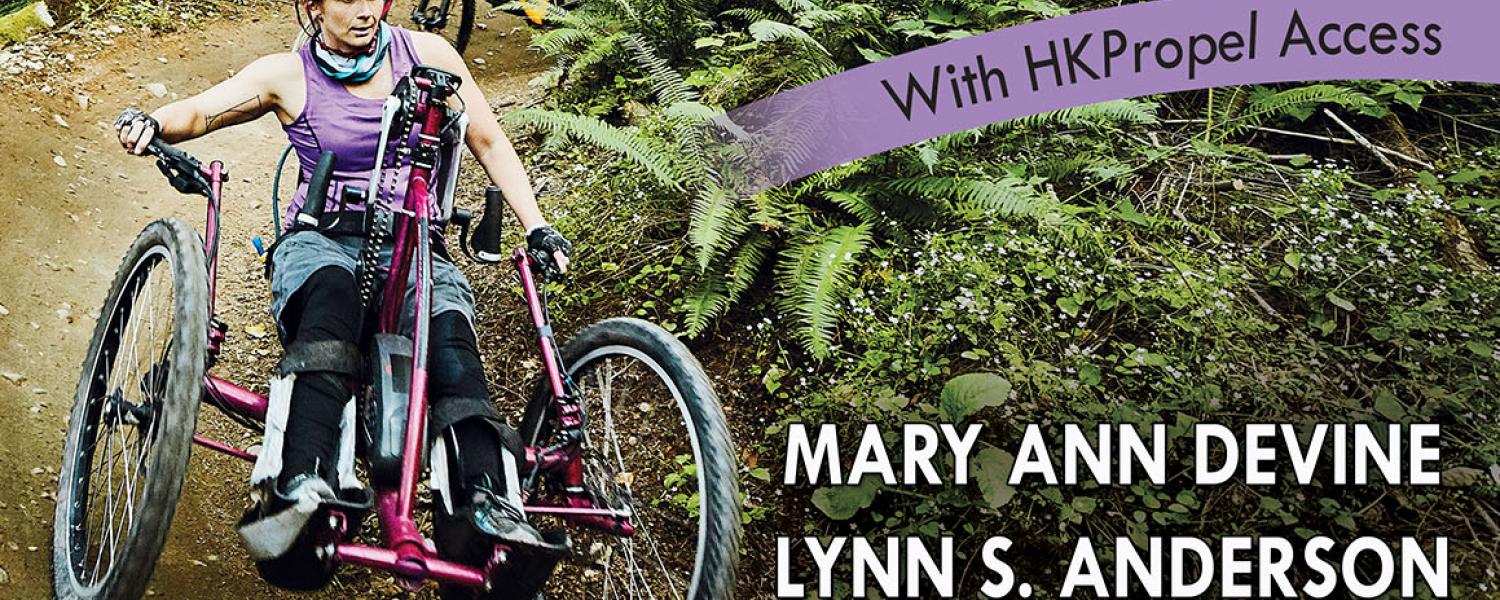Mary Ann Devine, Ph.D., and professor in the Recreation, Park and Tourism Management program, recently authored a book titled, âInclusive Leisure: A Strengths-based Approach.â
Devineâs book aims to take the rights of people with disabilities to a level where disability is viewed as simply a part of the human condition. Inclusive Leisure puts the strengths, abilities, and contributions of people with disabilities at the forefront of inclusion and access to leisure as a matter of social justice and common professional practice.
âInclusive leisure for persons with disabilities is a human right when considering quality of life, health and the pursuit of happiness,â said Devine, who also directs the Disability Studies and Community Inclusion minor/graduate certificate program. âThe inclusion of people with disabilities in leisure contexts has steadily increased globally, particularly since laws and regulations supporting their civil rights to leisure have been adopted and enforced by numerous countries.â
Conditions, impairments and labels assigned to people with disabilities have historically produced limitations. Further, people with disabilities are limited primarily by discrimination and societal distinctions. Devineâs book applies a social model to disabilities, whereby disability results from interactions with the physical and social environment. In other words, the ways in which society reacts to and treats those with disabilities can in part explain a historic lack of inclusion in our communities.
âInclusive Leisureâ takes the perspective that people with and without disabilities have more commonalities than differences, particularly in leisure contexts. It advocates using inclusive leisure to promote quality of life, health and happiness for people with disabilities; it examines physical and social leisure environments to promote inclusion; and it encourages leisure professionals to use best practices in inclusive leisure to create bonds and bring communities together.
âThe book uses a comprehensive approach to go beyond understanding only service provision methods, challenging users to view and apply inclusive leisure as a critical professional practice,â said Devine.
Specifically, âInclusive Leisureâ discusses ways to examine policies, administrative practices, organizational philosophies, personnel and marketing practices, infrastructure and service delivery to designing inclusive services. Grounded in a strengths-based approach, it challenges readers to learn about inclusion from a personâs abilities rather than their limitations.
Finally, it blends theoretical and practical information to prepare students to apply the concept of inclusivity to all aspects of leisure and recreation, including sport, fitness, travel and tourism, the arts, summer camps, outdoor/adventure activities, special events and more.
Devine and Lynn Anderson are credited as editors of the book, which was published by Human Kinetics. It can be purchased at .

